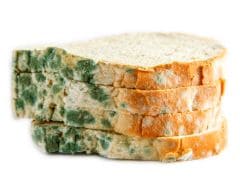


Waterborne Diseases: By following these guidelines and washing fruits and vegetables thoroughly, you can significantly reduce the risk of foodborne illnesses and enjoy the delicious bounty of the monsoon season safely.

There was little progress in reducing food poisoning rates in the U.S. last year, according to a report from the Centers for Disease Control and Prevention. Although Salmonella infections decreased by 9 percent in 2013, ...

Giving its first global estimates of preventable foodborne diseases, a WHO report called on governments and industry to improve inspections and control of the food chain from the fields and farmyard to the factory and ...

According to the latest CDC analysis, there were 120 multi-state outbreaks involving foodborne illnesses between 2010 and 2014 - an average of one about every two weeks.

Mishandling of food can lead to infection and worsen your health. This World Food Safety Day 2025, remember these important food safety practices to stay healthy.

Simple and inexpensive ultraviolet light technology can kill foodborne pathogens on the surface of certain fruits such as apples and pears, scientists, including those of Indian-origin, have found.

WHO states, World Food Safety Day is marked to "draw attention and mobilise action to prevent, detect and manage foodborne risks and improve human health."

Fruits and vegetables can continue to ripen and spoil even after they have been harvested. Which is why it is important to store them the correct way to prevent spoilage.

High humidity, coupled with increased moisture in the air, creates favourable conditions for the growth of bacteria, mold, and fungi during monsoon.

As per food safety experts, adulterated paneer may contain harmful substances or pathogens that can cause foodborne illnesses.